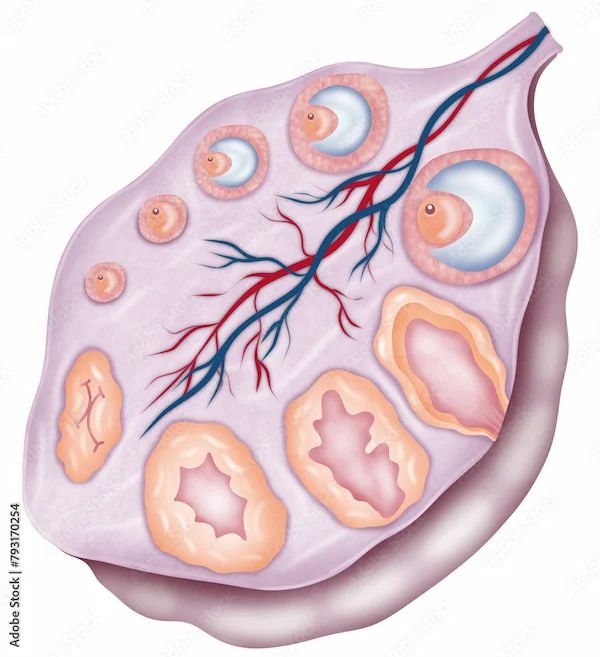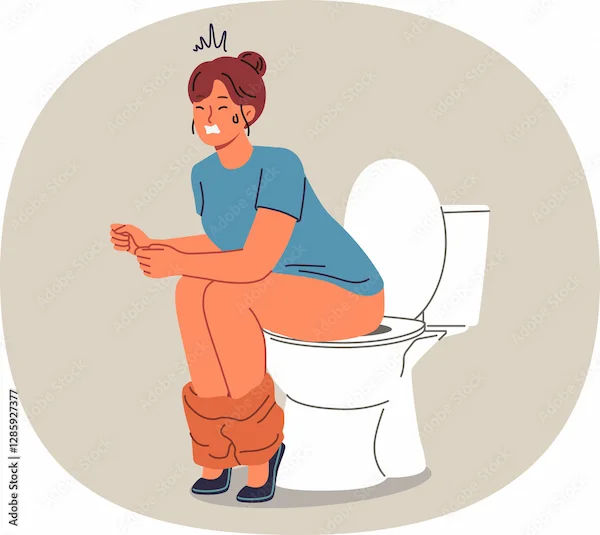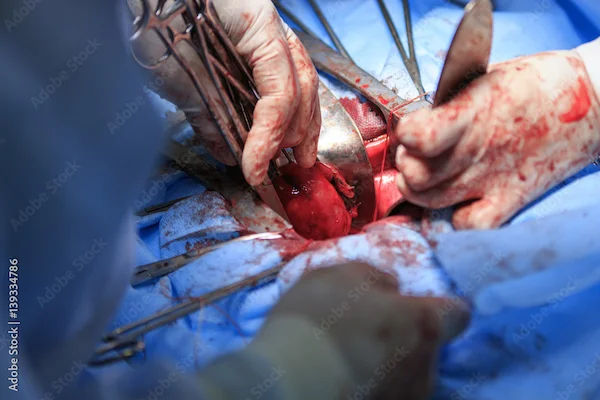Nicked Bladder During Hysterectomy Surgery
Understand what a nicked bladder during hysterectomy surgery means, including causes, symptoms, and treatment. Learn about this potential complication and its management.

Written by Dr.Sonia Bhatt
Last updated on 7th Jul, 2025

Introduction
Undergoing a hysterectomy (surgical removal of the uterus) can be a major decision for many women. While the procedure is generally safe, like any surgery, it carries some risks. One rare but possible complication is a nicked (or injured) bladder. If you or a loved one is preparing for or recovering from a hysterectomy, it’s important to understand what this means, how it happens, and what steps can be taken to manage it.
What Is a Nicked Bladder?
A nicked bladder refers to an accidental cut or injury to the bladder during surgery. Since the bladder sits close to the uterus, there’s a small chance it may get nicked during the procedure. While this complication is uncommon (occurring in less than 1% of hysterectomies), it’s important to recognize the signs early for prompt treatment.
How Does It Happen?
During a hysterectomy, surgeons carefully separate the uterus from surrounding organs, including the bladder. Factors that may increase the risk of bladder injury include:
Previous pelvic surgeries (like C Sections) causing scar tissue.
Endometriosis or fibroids, which can distort pelvic anatomy.
Surgeon’s experience and surgical technique (laparoscopic or robotic surgeries may have slightly different risks).
Signs and Symptoms of a Nicked Bladder
If the bladder is injured during surgery, symptoms may appear soon after or within a few days. Watch for:
Pain or burning sensation while urinating
Blood in urine (hematuria)
Difficulty urinating or reduced urine output
Leakage of urine (incontinence)
Fever or abdominal pain (if infection develops)
If you notice any of these symptoms after a hysterectomy, contact your doctor immediately.
Consult Top Nephrologist
How Is It Diagnosed and Treated?
If a bladder injury is suspected, your doctor may recommend:
Urine tests – To check for blood or infection.
Imaging tests – Such as a cystoscopy (a small camera inserted into the bladder) or an ultrasound/CT scan.
Dye test – A special dye is injected into the bladder to detect leaks.
Treatment Options
Small injuries may heal on their own with a catheter placed for 1-2 weeks to allow the bladder to rest.
Larger tears may require surgical repair, often done during the same procedure if detected early.
Antibiotics may be prescribed to prevent infection.
Most women recover fully with proper treatment.
How Can You Prevent Complications?
While you can’t control surgical risks entirely, you can take steps to minimize complications:
Choose an experienced surgeon – Discuss their track record with hysterectomies.
Share your medical history – Inform your doctor about previous surgeries or pelvic conditions.
Follow post op instructions – Avoid heavy lifting and follow bladder care guidelines.
When to Seek Help
Call your doctor right away if you experience:
Severe pain or swelling in the abdomen
High fever or chills
No urine output for several hours
Persistent blood in urine
Recovery and Long-Term Outlook
With timely treatment, most bladder injuries heal without long term issues. You may need:
Followup visits to ensure proper healing.
Pelvic floor exercises (Kegels) to strengthen bladder control.
Hydration and a healthy diet to support recovery.
Final Thoughts
A nicked bladder during hysterectomy is rare but manageable when detected early. If you’re concerned about your surgery or recovery, don’t hesitate to ask questions. Apollo 24|7 offers expert consultations and diagnostic tests to ensure your health is on track. Need help? You can book a consultation with a gynecologist or urologist through Apollo 24|7 for personalized advice and care.
Consult Top Nephrologist
Consult Top Nephrologist

Dr. Hareesha Babu K
Nephrologist
25 Years • MBBS, MD (General Medicine), DM (Nephrology),FASN, FRCP(Glasg), FRCP (Edin)
Bangalore
Kidney & Hypertension Care, Bangalore

Dr. Pardha Saradhi
Nephrologist
9 Years • MBBS, MD-DNB (Gen. Med.), DNB (Nephro)
Hyderabad
Apollo Hospitals D R D O kanchanbagh, Hyderabad
(50+ Patients)
Dr Ch Sashidhar
Nephrologist
20 Years • MBBS, MD General Medicine, DNB, Nephrology
Secunderabad
Apollo Hospitals Secunderabad, Secunderabad

Dr Praveen Kumar Etta
Nephrologist
10 Years • MBBS,MD DM(SGPGI) FORMER ASST(PIMS)
Hyderabad
Apollo Spectra Ameerpet, Hyderabad

Dr. Manju Kamal
Nephrologist
12 Years • MBBS,MD(General Medicine), DNB,DM(Nephrology)
Angamaly
Apollo Hospitals Karukutty, Angamaly
Consult Top Nephrologist

Dr. Hareesha Babu K
Nephrologist
25 Years • MBBS, MD (General Medicine), DM (Nephrology),FASN, FRCP(Glasg), FRCP (Edin)
Bangalore
Kidney & Hypertension Care, Bangalore

Dr. Pardha Saradhi
Nephrologist
9 Years • MBBS, MD-DNB (Gen. Med.), DNB (Nephro)
Hyderabad
Apollo Hospitals D R D O kanchanbagh, Hyderabad
(50+ Patients)
Dr Ch Sashidhar
Nephrologist
20 Years • MBBS, MD General Medicine, DNB, Nephrology
Secunderabad
Apollo Hospitals Secunderabad, Secunderabad

Dr Praveen Kumar Etta
Nephrologist
10 Years • MBBS,MD DM(SGPGI) FORMER ASST(PIMS)
Hyderabad
Apollo Spectra Ameerpet, Hyderabad

Dr. Manju Kamal
Nephrologist
12 Years • MBBS,MD(General Medicine), DNB,DM(Nephrology)
Angamaly
Apollo Hospitals Karukutty, Angamaly




